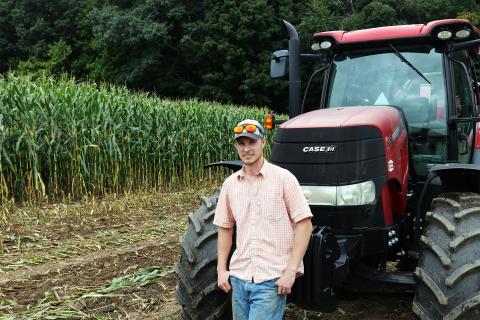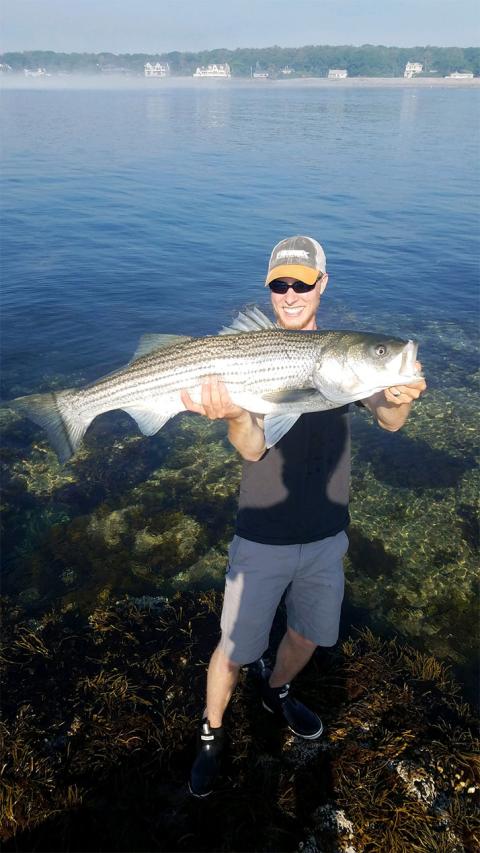
Manager of Farm Services Operations Peter Davis ’16 has a long history of working for the New Hampshire Agricultural Experiment Station. While earning two degrees from the UNH Thompson School of Applied Science, Pete worked as a student employee for UNH Farm Services. He graduated in 2016 with associate degrees in civil technology: construction management concentration and applied business management and afterwards joined Farm Services full-time as a lead farm worker under the previous manager of farm services, John Palmer. Pete served as a lead farm worker and trained under Palmer for four years, before working for the Portsmouth Naval Shipyard for a year.
When Pete heard that his mentor was retiring, he jumped at the chance to apply to the role. Now, nearly two years in, he oversees two team members and the management of close to 300 acres of property.
It’s hard to get farming out of you once you’ve been in it – it kinda gets stuck in your blood.

Position: Manager, Farm Services Operation
Years with NHAES: Started current position in 2021; worked as a lead farm worker 2016-2020
Previous positions: Worked as a Lead Farm Worker for UNH’s Farm Services Operations for 4 years after graduating from the Thompson School of Applied Science; worked 1 year at Portsmouth Naval Shipyard prior to returning to UNH.
Pete Davis: Primarily, we make all the crops and feed for the Fairchild Dairy Teaching and Research Center and the UNH Equine Facilities. We make a lot of hay – square bales for the horses and we chop grass to create haylage and chop corn silage for the cows. We also assist at all the farm properties, helping with maintenance and equipment repairs. We plow snow in the winter.
We usually stay pretty busy fixing and upgrading equipment at the various facilities and doing all the crop work. We also spread the manure on fields. I do a lot of random jobs too – I broker all the bedding for the farm properties. All of our facilities use wood shavings and wood sawdust for the animal bedding. So I order the loads and schedule them from a trucking company.
Pete: It’s hard to get farming out of you once you’ve been in it – it kinda gets stuck in your blood. I’ve always been around farms. I worked on a couple farms in high school, when I worked part-time on a farm in central Massachusetts, where I grew up. I started out buying hay for a family horse from a farmer, then worked for him and learned a lot about creating hay.
It’s been in my family too. One of my grandfathers worked a farm in the Ithaca, New York, area.
And I just like how there’s something different every day. You’re not going to go do the same job every single day – it’s always changing and evolving. For example, how technology has changed the job and how the climate is changing, it’s never going to be the same year after year with farming. It’s definitely challenging, which is sometimes frustrating but also nice because it keeps you on your heals.
Pete: We work about a dozen properties total. Some places have multiple fields. For horse hay, we normally like to do two cuttings per field. For haylage – grass for the cows that we chop – that’s four cuttings. And corn silage is just one cutting. In all, that’s about 60 acres of corn and roughly 260 acres total – both corn and grass. We cover a lot of ground.
There are some Station properties that we help at more than others, but we do work at all of them in some form or another.
Learn more
Pete: I really enjoy fishing – both saltwater and freshwater. I do a lot of fly fishing. I have two little ones at home, so they keep me pretty busy too.
I do a lot of surfcasting also, fly fishing, and regular freshwater spinning. I do pretty much all of it.